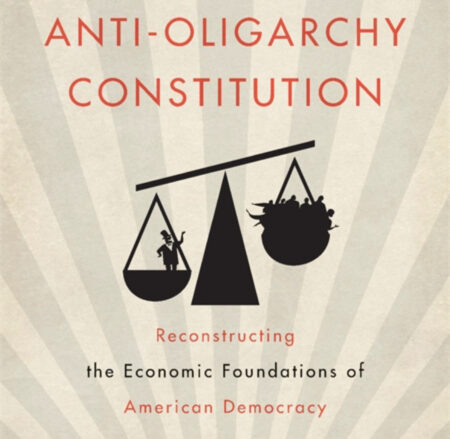Seven friends of the blog offer their initial reactions to the FTC's recent policy statement on unfair methods of competition.
"It is not true that the U.S. Constitution has little to say about our economic rights and liberties – let alone our material welfare. Instead, as Fishkin and Forbath argue convincingly, the Constitution has nourished a democracy-of-opportunity tradition that places our equal social rights front-and-center in constitutional practice and politics."
Last week, the Supreme Court struck down the Biden Administration’s most recent moratorium on evictions. The decision, along with an anemic federal rental assistance effort, has put millions of people at risk of being removed from their homes. To offer our readers different ways into this important ruling, we asked Amy Kapczynski, Nikolas Bowie, Tara…
Scholarship thus far has not reconciled the relationship between democratized agency policymaking and the regular lawmaking done by Congress. To ameliorate the inexorable agency costs, theorists generally pose two different solutions: (1) a democratization of agency discretion, e.g., by making notice and comment procedures more robust; or (2) forcing Congress to elaborate their intent in fine-grained detail or undertake more robust oversight. Both moves inadvertently replicate a conceptual mistake committed by many anti-administrativists. This essay will rectify this mistake.
One of LPE’s foundational commitments, as Sanjukta Paul reminds us, is that law constitutes markets – and that, as a result, we are free to constitute them differently. But this simply begs the question: how ought we constitute them? This is where political theory can be useful. As Sam Bagg points out, many LPE scholars already understand that democracy must have something…





